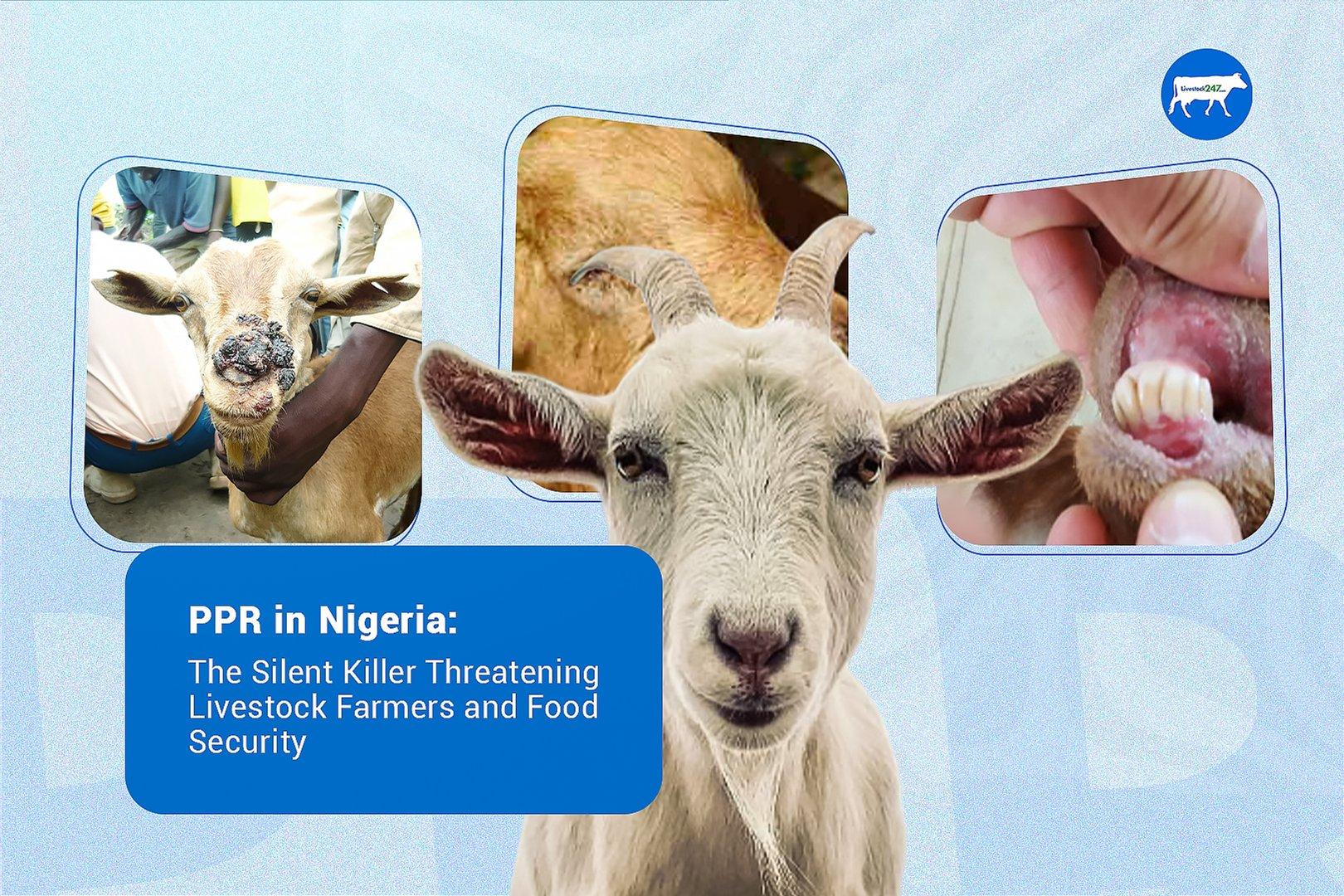Livestock247 - PPR in Nigeria: The silent killer threatening Livestock farmers and food security
According to FAO and WOAH, PPR is present in over 70 countries across Africa, the Middle East, and Asia, threatening more than 80% of the global small ruminant population.
 What is PPR?
What is PPR?
Peste des Petits Ruminants (PPR), also known as “goat plague,” is a highly contagious viral disease that affects goats and sheep. It spreads rapidly and can cause devastating economic losses, especially in rural communities where livestock plays a critical role in livelihoods.
Current Situation in Nigeria
Nigeria is currently classified as endemic for PPR by both the Federal Ministry of Agriculture and Food Security (FMAFS) and international health bodies. Outbreaks are consistently reported, especially across northern and central regions, peaking during the dry season and festive periods when animal movement intensifies. Most Affected Areas Include: North: Kano, Katsina, Sokoto, Borno, North Central: Niger, Nasarawa, Kaduna; South-West: Oyo, Ogun
A 2023 joint surveillance report by the National Veterinary Research Institute (NVRI), FAO, and WOAH revealed that PPR is responsible for over 60% of goat and sheep mortalities in certain outbreak zones.
6 Key Symptoms Farmers Must Watch Out For
- Sudden fever
- Nasal and eye discharge
- Mouth sores with excessive drooling
- Severe diarrhea
- Breathing difficulty or persistent coughing
- High death rates, especially in young animals
Note: The disease often spreads before symptoms become obvious, so prevention is always better than cure.
Why PPR Matters: Economic and Food Security Threat
In Nigeria, small ruminants like goats and sheep are lifelines for low-income households. These animals are vital for daily income (milk and meat sales), cultural and religious, empowering women and rural youth with jobs and assets. An outbreak of PPR can wipe out an entire herd, triggering food insecurity, increased poverty, and total investment loss.
What Can Farmers Do?
To protect your livestock and your community, here are 5 key steps every farmer should take:
1. Vaccinate your flock: ensure your goats and sheep are vaccinated annually. The vaccine is safe, affordable, and often free or subsidized in many states.
2. Report sick animals immediately: Do not hide or sell sick animals. Report symptoms to your local veterinary officer, an extension agent, or the nearest Livestock247 rep.
3. Isolate new or sick animals: Quarantine all new arrivals for at least 14 days before mixing with the rest of your herd.
4. Practice good hygiene: disinfect pens regularly, avoid overcrowding, and always provide clean water and feed.
5. Avoid unnecessary animal movements, especially during outbreak seasons. Keep movements to a minimum to reduce exposure.
Conclusion
PPR is preventable and even eradicable. But success depends on collaboration between farmers, veterinarians, and government agencies.
You, the farmer, are the first line of defense.
By vaccinating, reporting, and practicing good biosecurity, you’re not just protecting your herd; you’re protecting your community, your income, and Nigeria’s food security.
Let’s spread awareness, not the virus.
Additional Resources
FAO PPR Global Eradication Programme: www.fao.org/ppr, WOAH PPR Eradication Updates: www.woah.org, FMAFS Livestock Health Services: www.fmard.gov.ng.
Want more livestock health insights? Follow Livestock247 for updates, resources, and veterinary support.
Admin
Livestock247 Digital Marketing Unit
No comments yet. Login to start a new discussion Start a new discussion